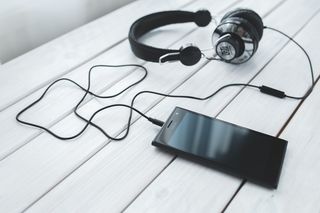Misophonia
Misophonia: What Does an Audiologist Do?
Know what different providers can do to help.
Posted February 5, 2019
Many individuals with misophonia, as well as families affected by the disorder, want to better understand what various kinds of providers contribute to coping skills. As a psychological counselor, I am always looking to audiologists for answers. While there has been disagreement in regard to what kind of practitioner should treat misophonia, I have always advocated for a multidisciplinary approach. An audiologist is an integral part of this team. The following is an interview with Dr. Diana Callesano from the Hearing and Tinnitus Center in Woodbury, NY. Diana trained under Dr. Melanie Herzfeld, and both biographies can be found at Misophonia Providers.
Dr. Jennifer Jo Brout: How did you become an audiologist? What drew you to this field?
Dr. Diana Callesano: Hearing loss played a major role in my family dynamics for many years before I became an audiologist. My grandfather served as a WWII pilot, which resulted in significant hearing impairment. From my earliest memories, my grandfather wore hearing aids and struggled to participate in conversation. I knew this was an invisible condition that had serious implications for social and emotional well-being. So, in my sophomore year I was required to take a class in audiology, and from that point on I was hooked!
Dr. Jennifer Jo Brout: What conditions do you treat?
Dr. Diana Callesano: At the Hearing and Tinnitus Center, we specialize in tinnitus, misophonia, and hyperacusis. We also diagnose and treat hearing loss and auditory processing disorders.
Dr. Jennifer Jo Brout: How did you become involved with people with misophonia?
Dr. Diana Callesano: After graduating from my doctoral studies, I began my career at the Hearing and Tinnitus Center. It is here that my interest in misophonia piqued. Misophonia is a condition that is not widely known or spoken about. Many of the patients we worked with were underserved and did not know where to turn.
Dr. Jennifer Jo Brout: Would you briefly explain how you help those with misophonia? What are the different options that you can offer as an audiologist?
Dr. Diana Callesano: We use sound to combat sound! Sound therapy has been shown to be an effective option for retraining the reaction to certain noises. By reducing the brain’s perception of these triggers, the offensive sounds are neutralized and therefore are less distressing. This type of therapy comes in different forms, such as through the use of sound-producing apps and/or ear level sound-generators.

Dr. Jennifer Jo Brout: Do you find that any of these options work better than others?
Dr. Diana Callesano: In general, ear-level maskers tend to be the more effective and viable option. They are discreet, yet allow for mingling noises to be played into the ears throughout the day.
Dr. Jennifer Jo Brout: Is there any general advice that you would give to parents of children with misophonia?
Dr. Diana Callesano: If your child is expressing any discomfort to certain sounds, listen to them! Misophonia is a genuine condition that may have a negative impact on emotional wellness if left untreated. There are many coping strategies and techniques that may be used to help your child manage and live their best life!
Dr. Jennifer Jo Brout: Thank you very much for your time!
For more information, visit Misophonia International.


